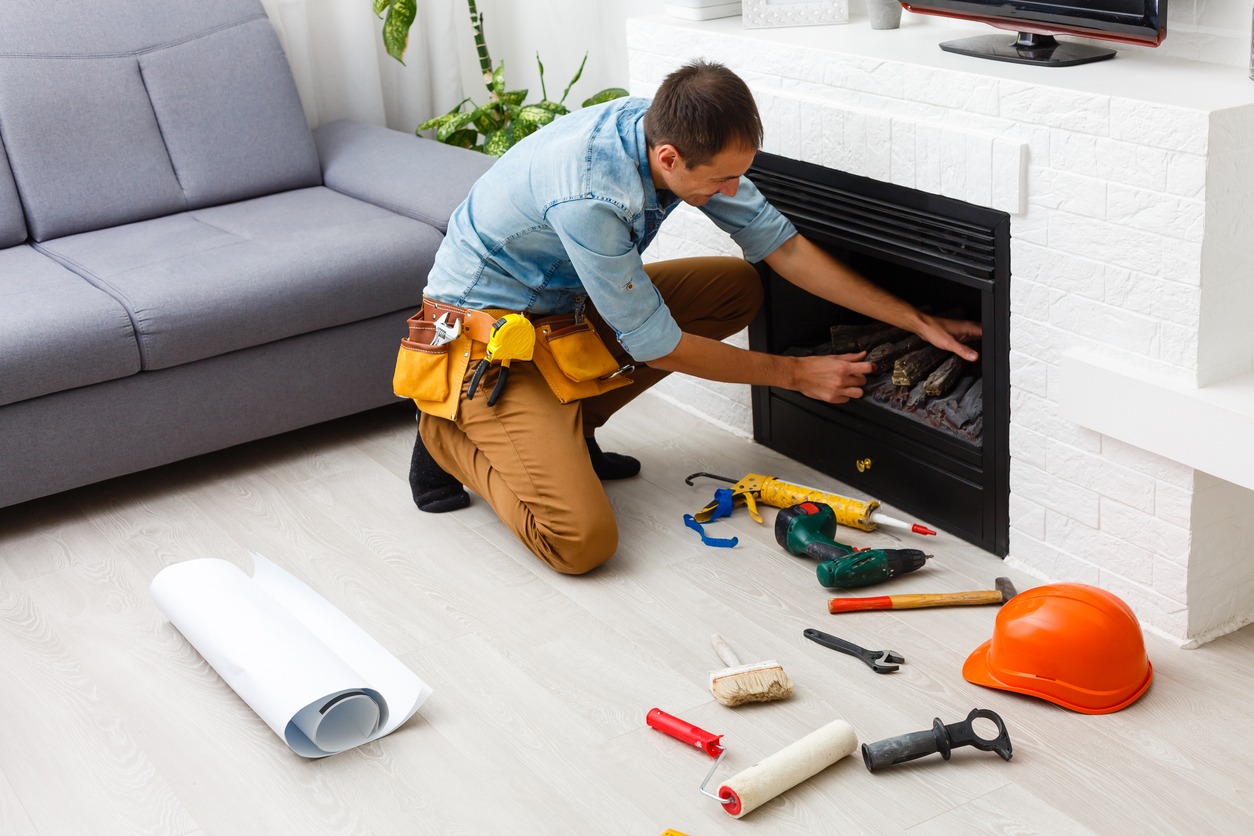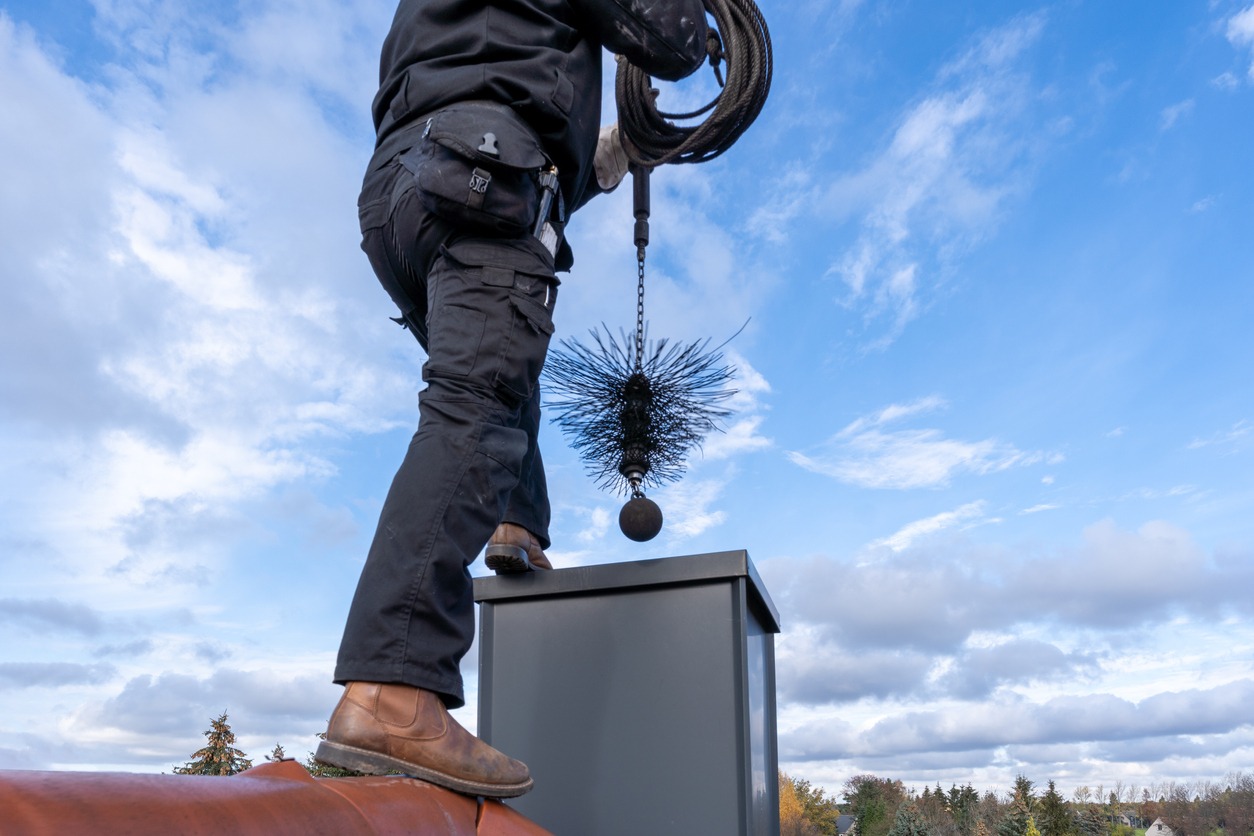Selecting the right professional for fireplace and chimney maintenance is not just a matter of enhancing the cozy ambiance of your home; it’s also a critical safety consideration. A well-maintained fireplace and chimney are essential for preventing hazards such as chimney fires and carbon monoxide leaks, making the choice of a maintenance service a significant decision. With numerous providers offering a range of services, it can be challenging to determine who is truly qualified and reliable. To navigate this crucial choice, it’s important to arm yourself with a set of specific and pertinent questions.
In this article, we’ll explore 20 essential questions to ask when hiring fireplace and chimney maintenance services. These questions are designed to delve deep into the qualifications, experience, and practices of potential service providers.
1. How long have you been providing fireplace and chimney maintenance services?
Experience is important in this field. A long-standing service provider is likely to have extensive knowledge and skills in dealing with a variety of fireplace and chimney issues. Experienced technicians are better equipped to identify and solve complex problems.
2. Are you licensed and insured for this type of work?
Proper licensing ensures that the service provider or contractor meets the required professional standards. Insurance is important for protecting your property and guarding against liability in case of accidents during the service.
3. Do you have any certifications from recognized industry organizations?
Certifications from organizations like the Chimney Safety Institute of America (CSIA) indicate that the technician has received formal training and adheres to industry best practices. This is a hallmark of professionalism in chimney and fireplace maintenance.
4. Can you provide references from previous clients?
References allow you to verify the quality of their work and customer satisfaction. Positive feedback from other homeowners is a good indicator of reliability and quality of service.
5. What services are included in a standard maintenance visit?
Knowing what’s included, such as inspection, cleaning, or minor repairs, helps you understand what to expect. It also allows for comparison with other service providers.
6. How do you handle the inspection and cleaning of different types of fireplaces and chimneys?
Different types of fireplaces (wood-burning, gas, pellet, etc.) and chimneys require varied maintenance approaches. It’s important to ensure the service provider has the expertise to handle your specific setup. Here are the details about a few of the most common types of fireplaces:
- Wood-Burning Fireplaces – Traditional and classic, wood-burning fireplaces offer a natural and authentic experience. They create a cozy atmosphere with the distinct sound and smell of burning wood. These fireplaces require a chimney and regular maintenance to remove ash and soot. They are best suited for homes where firewood is easily accessible.
- Gas Fireplaces – Gas fireplaces are convenient and clean, providing heat without the need to burn wood. They can be ignited with a switch and don’t produce ash or soot. Gas fireplaces come in vented and ventless models. Vented models are similar to traditional fireplaces with a chimney, while ventless models can be installed without any external venting.
- Pellet Fireplaces – Pellet fireplaces burn compressed wood or biomass pellets. They are more efficient and cleaner than traditional wood-burning models. These fireplaces often feature a hopper that feeds pellets into the fire and can be programmed for consistent temperature control.
- Electric Fireplaces – These are highly convenient and versatile, as they don’t require any venting or fuel supply other than electricity. Electric fireplaces can be installed anywhere and are ideal for apartments or homes where installing a chimney is not feasible. They offer adjustable heat settings and can even be used for ambiance without heat.
7. What is your procedure for identifying and addressing safety hazards?
The primary goal of chimney maintenance is to ensure safety. The technician should have a thorough process for identifying hazards like blockages, creosote buildup, and structural issues.
8. How often do you recommend maintenance for my fireplace and chimney?
The frequency of maintenance can depend on usage and the type of fireplace. A knowledgeable technician can recommend a schedule that keeps your fireplace and chimney in optimal and safe condition. To know more about how to keep your chimney in top condition for a long time, check out our tips on Maintaining Your Chimneys for the Long Term.
9. Do you offer repairs, and are they handled by your team or subcontracted?
If repairs are needed, it’s important to know if the service provider can handle them and if they use their own team or subcontractors. This affects the consistency and quality of the work.
10. What are your rates, and are there any additional fees?
Understanding their fee structure, including any additional costs for repairs or extra services, helps you budget for maintenance. This includes clarifying whether certain services incur extra charges.
11. What steps do you take to protect my home during maintenance?
Chimney cleaning can be messy. The service provider should take measures to protect your home’s interiors from soot and debris.
12. What kind of technology or tools do you use for inspection and cleaning?
Modern chimney maintenance can involve technology like video inspection tools. This can provide a more thorough assessment of the chimney’s condition.
13. How do you stay updated with current codes and safety standards?
Adherence to current building codes and safety standards is crucial. A professional service provider should be up-to-date with these requirements.
14. Do you provide a detailed report after inspection and maintenance?
A detailed report provides a record of what was done and any recommendations or issues found. This is valuable for your records and future maintenance.
15. Can you handle installations or upgrades to fireplace systems?
If you’re considering upgrading or installing new fireplace systems, it’s useful to know if the service provider has the capability to handle such projects.
16. What is your availability for emergency services?
In case of an emergency, such as a chimney blockage or malfunctioning fireplace, quick response is important. Knowing their availability for emergencies is crucial.
17. How do you comply with environmental regulations?
Compliance with environmental regulations is important, especially if your fireplace or chimney work involves any changes that could impact emissions.
18. What training do your technicians undergo?
Understanding the training and qualification process of the technicians assures you of the quality and safety of the work being performed.
19. How do you handle complex or unusual chimney problems?
Complex issues with fireplaces and chimneys require a higher level of expertise. Knowing how they approach and solve intricate problems can give you confidence in their abilities.
20. What makes your services unique compared to other providers?
Understanding what sets them apart, whether it’s their expertise, customer service, or innovative techniques, can help you make an informed decision.
These questions will give you a better understanding of the fireplace and chimney maintenance service’s capabilities, professionalism, and reliability, ensuring you choose a provider that meets your specific needs.


